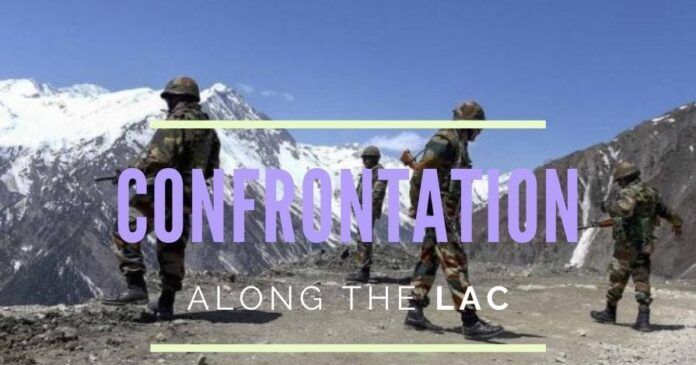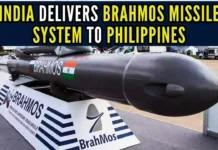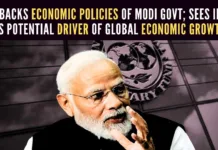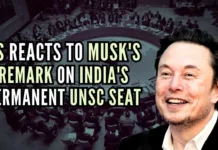
War of Words simmering
The war of words between India and China is simmering with the absence of Military Commander level talks. Rebutting the Chinese claim that India is responsible for tension at the Line of Actual Control (LAC), India’s External Affairs Ministry on Friday hit back and said the situation worsened due to efforts by Beijing to “unilaterally change” the status of the LAC. India’s External Affairs Ministry spokesperson Anurag Srivastava in strong words blamed China for the unilateral changes in the borderlines, reacting to the Chinese foreign ministry blaming India again for the border situation in eastern Ladakh.
MEA hits out at China
“Our position has been very clear and has been articulated several times in the past. The situation that we have seen since the last six months has been a result of the actions of the Chinese side which has sought to effect a unilateral change in status along the LAC in eastern Ladakh,” he said.
The exchange of words between the two countries came at a time when the armies of India and China are locked in a tense border standoff in eastern Ladakh since early May.
“These actions are in violation of the bilateral agreements and protocol on ensuring peace and tranquility along the LAC in the India-China border areas,” Srivastava added.
“We have taken note of the Chinese side’s statement that it observes ‘strictly the agreements between the two sides and is committed to resolving the border issue through dialogue and safeguarding peace and tranquility’ in the border areas. We expect that the Chinese side will match its words with actions,” Srivastava said.
China blames India
A Chinese foreign ministry spokesperson on Thursday blamed India again for the border standoff in eastern Ladakh.
Why the war of words?
The latest war of words between India and China broke out after External Affairs Minister S Jaishankar said two days back that relations between the two countries are at their worst stage in the last 30 to 40 years. He also said ties with China have been “significantly damaged.”
Striking a strident note in the backdrop of armies of both the countries locked in face-offs at the 1,700 km long LAC in Ladakh, Jaishankar said the ties were “very significantly damaged” because of Beijing’s violation of agreements on maintaining peace and tranquility on the LAC. He also admitted that the talks between the two countries at various levels had so far failed to address the basic issue that “agreements are not being observed.”
Recently India decided to deploy elite naval commandos – Marcos – at the Pangong Lake area, which is one of the major sensitive areas.
Chinese “explanations”
The Chinese have given five “differing explanations” for violating the agreements by bringing tens of thousands of soldiers to the LAC in the Ladakh sector, a development that has “profoundly disturbed” the relationship, he said in an online conversation with the Australian think tank Lowy Institute.
The exchange of words between the two countries came at a time when the armies of India and China are locked in a tense border standoff in eastern Ladakh since early May. Both sides have held multiple rounds of military and diplomatic talks. However, no breakthrough has been achieved yet.
Communication channels open
Srivastava said the two sides have continued to maintain communication through diplomatic and military channels. “It is our expectation that the further discussions will help both sides to achieve an agreement on a mutually acceptable solution for ensuring complete disengagement in all friction points along the LAC in the western sector and full restoration of peace and tranquillity as early as possible,” he said.
Meanwhile, the Military Commander level talks have stopped after the 8th meeting in November and there were reports that the 9th meeting at the end of November will find ways of de-escalation from both sides[1]. Recently India decided to deploy elite naval commandos – Marcos – at the Pangong Lake area, which is one of the major sensitive areas [2].
References:
[1] India and China expected to agree for disengagement of troops, heavy tanks, and artilleries from stand-off points soon – Nov 12, 2020, PGurus.com
[2] India to deploy elite Marine Commandos (MARCOS) of the Navy for patrolling at strategic Chinese border points – Nov 28, 2020, PGurus.com
- NIA confiscates Pak-harboured Khalistani terrorist Lakhbir Singh Rode’s key aide’s land in Moga - April 19, 2024
- Prime Minister Narendra Modi: A Gujju businessman who does not invest his precious time for a losing battle - April 13, 2024
- NIA arrests two accused Shazib and Taahaa in Bengaluru’s Rameshwaram Cafe blast case from Kolkata - April 12, 2024











[…] in Vietnam and deep scars in several East-Asian countries including Cambodia, Laos, and the entire Indo-China […]
[…] खबर को अंग्रेजी में यहाँ […]
China is in a stronger position right now. New US President is favorable to them, at the least he is not favorable for BJP and will surely criticize BJP/Hindutva. Kamala will do it more as she would play her Indian origin card. Also, Farmer protest is hurting credibility of the govt. as they don’t know what to do next. China knows that in such a situation if it plays its hand correctly, then opposition can easily prove Modi govt. as failing in all fronts.
Is there anyone from the government of India or anyone in India who knows Russian and can read their social media commentary on India and Indians?
We seem obsessed with Pakistan and China yet the same thing is being done in the Russian language and all this escapes the English language media. Make no mistake, pak is represented very well in Russian and central Asian languages but India isn’t.
Time to start looking at these Russian “tourists.”